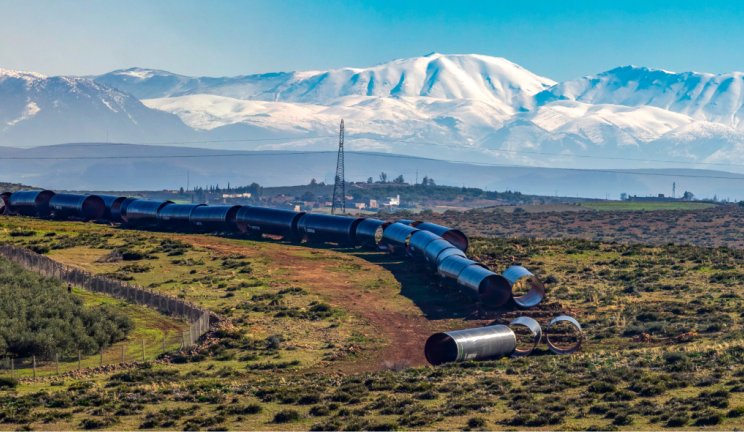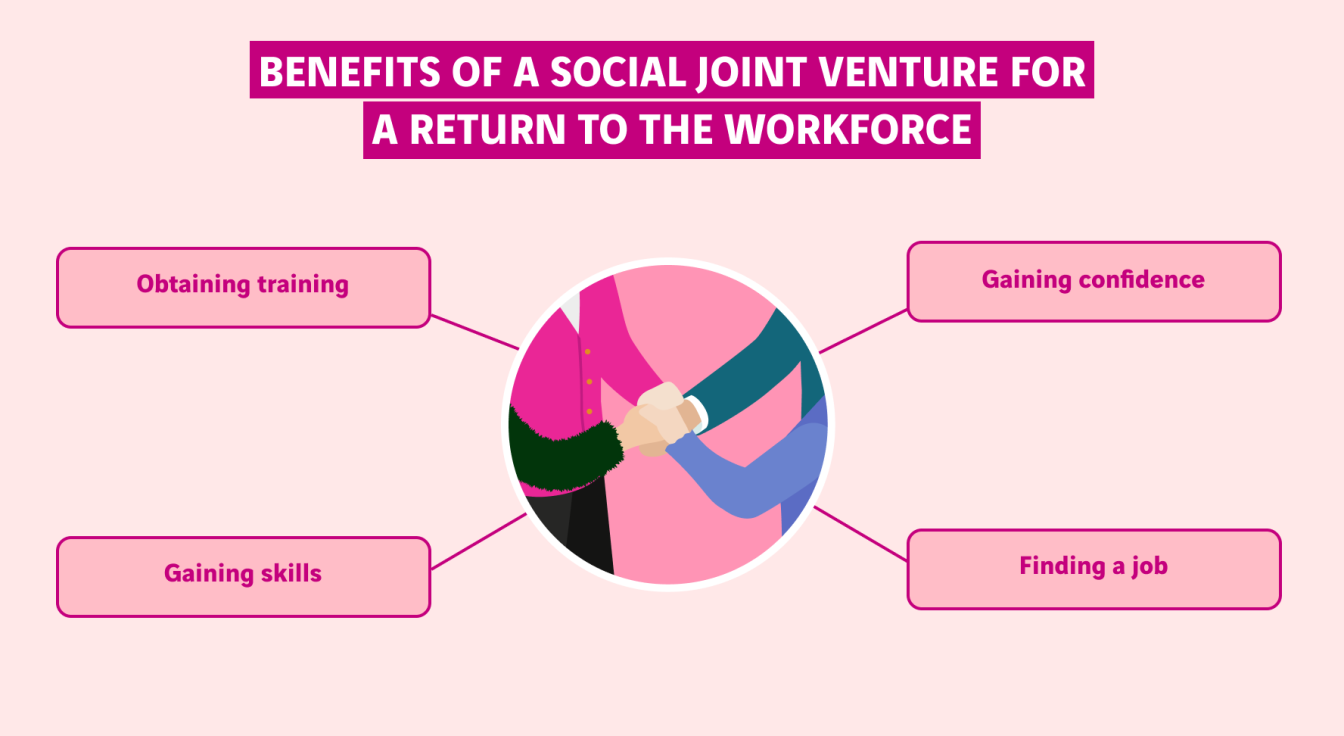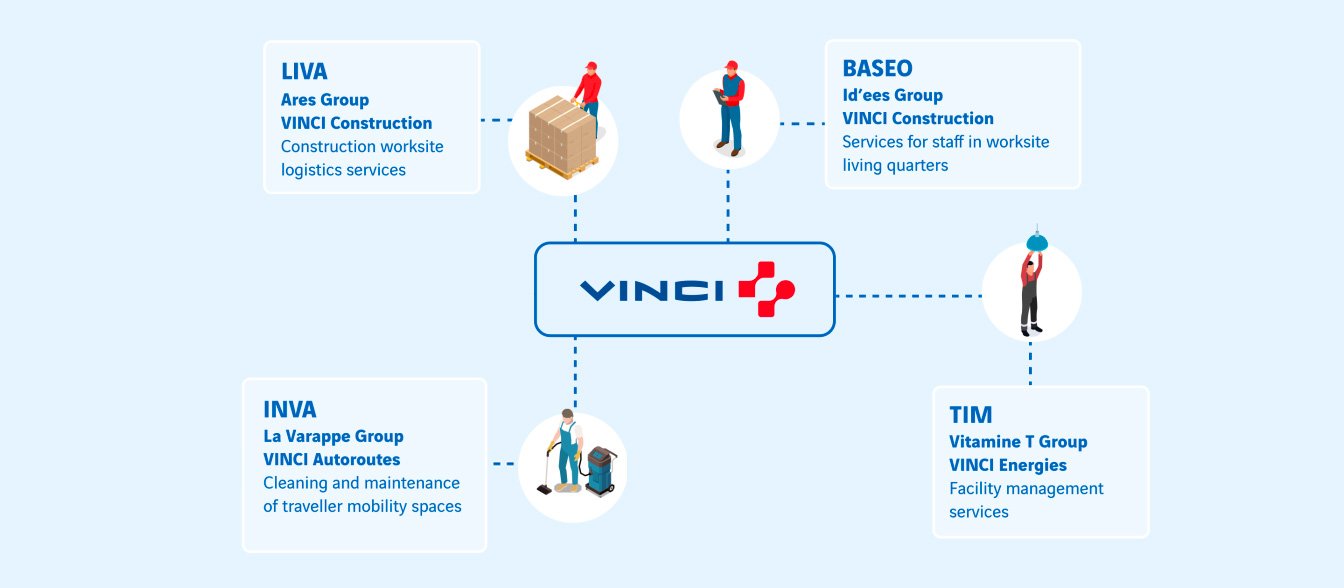Social joint ventures: from exclusion to employment
Encouraging collaboration between companies and players from the social sphere, to promote inclusion of vulnerable populations through employment: this is the goal of social joint ventures. The strength of this alliance? A joint undertaking model that combines economic performance with social aspirations. In France, of the 20 joint ventures identified, four are joint undertakings created with a subsidiary of the VINCI group. We take a look at this unique model.
Social joint venture: social support and a professional springboard
VINCI is a stakeholder in four social joint ventures in France, operating in the upkeep of worksite living quarters and motorway service stations, worksite logistics and routine maintenance of infrastructures and buildings, as well as stripping of buildings and upkeep of green spaces. These companies, jointly managed and with capital thus shared between a social entity and a subsidiary of the Group, create real pathways towards employment for individuals facing exclusion. VINCI’s companies call upon these entities to meet the specific requirements of their worksites, as an extension of their business lines.
The road from exclusion to employment is a long and difficult one. To ensure that it leads to inclusion, the social joint venture has the advantage of combining the two necessary elements: support from social action professionals and, at the same time, a springboard to employment thanks to the support of a private player. It is this dual governance and dual support that make the JVS such a success.
Pathways to lasting integration
For employees in job integration programmes, working within a social joint venture is an opportunity to re-enter the workforce. This enables many individuals to get a foot in the door, obtain training and gain skills and confidence before moving onto a position outside the social joint venture. This was the case for Carmen, who successfully transitioned to employment through participation in Inva, a social joint venture between the La Varappe group and VINCI Autoroutes. “I had no qualifications. I started to do a professional qualification in sales, but I gave up because I didn’t enjoy it. I worked on a number of temporary assignments in logistics, but I needed stability. I applied for a position with Inva as a maintenance technician for motorway service areas and cleaning offices and toilets. I wasn’t familiar with this area, and even though it’s physical work, I enjoyed it very much. After this successful experience, I have just been hired by the departmental council in Marseille as a maintenance technician in the schools!”.
Social joint ventures also represent a labour pool for VINCI’s companies and a professional springboard for the beneficiaries. In the Liva joint venture, which offers worksite logistics services, for example, employees that meet certain prerequisites and who are interested in building and civil engineering trades can find themselves being offered positions. They are offered work-study contracts including on-the-job training at a VINCI company and culminating, if successful, in a professional qualification and a permanent job. Thanks to this “work integration to inclusion” pathway, the VINCI Construction subsidiary Chantiers Modernes Construction now hires 14% of its workers from social integration programmes, and is targeting a figure of 20%.
Our business lines are heavily involved in social integration. We are proud to welcome people from all backgrounds, regardless of what they did before and their training, provided they are committed to working on our sites. Social JVs are innovative initiatives that provide a means of bringing people who have become estranged from the job market back into employment. To that extent, we play a social role whilst also preparing the future workforce of our companies, giving opportunities to men and women who really need them.
Pierre Anjolras, Chief Operating Officer of VINCI and Chairman of VINCI Construction
VINCI joint ventures
Subscribe
Stay tuned : receive our newsletter
Every quarter, discover new articles, exclusive features and experts' views delivered straight to your inbox.
Most viewed
Vous aimerez aussi

Marina Lévy - Companies at the heart of ocean conservation issues
Marina Lévy, oceanographer, research director at the CNRS and ocean advisor to the president of the French National Research…

Access to water in Africa: persistent challenges despite major progress
When looking at the situation of safely managed water supplies in Africa, the glass could be seen as half full, rather than…

Building with and for nature
Whether creating barrages, stripping away topsoil, cutting down trees or digging channels, humans have spent thousands of…


